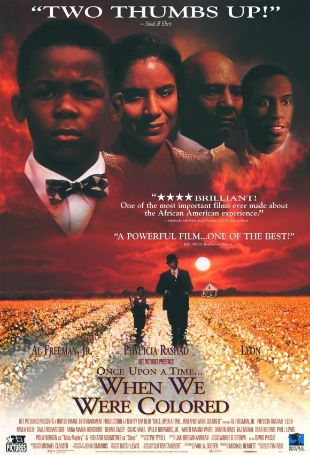Unfailingly earnest, Tim Reid's Once Upon a Time . . . When We Were Colored can't help but be a bit square in its execution. This doesn't mean it isn't worth watching -- just that a viewer should not expect a quick pace, nor a particularly satisfying story arc. A former actor, Reid shows his heavy hand in every scene, while Phill Lewis' overly academic narration (scripted by Paul W. Cooper) breaks the spell of the narrative each time it intrudes. These decisions firmly entrench the film in the realm of sepia-toned docudrama, when it could have been told like rousing historical fiction. Even the sources of conflict have no bite. The film shies away from controversy, portraying the white oppressors with a dispiriting level of political correctness. This leaves the ugliness of racism largely buried, existing subliminally in the characters' declarations that they "need to get out of this town," without providing a clear sense what's motivating that impulse. Further lessening the film's emotional impact, it doesn't focus on any one character for any length of time. Even though it's an adaptation of Clifton Taulbert's autobiography, his character is only the protagonist in fits and starts. The rest of the time, the narrative wanders to focus on other characters, frequently dramatizing events at which Clifton was not present, which makes their veracity seem suspect. It's unfortunate that a review of Once Upon a Time . . . When We Were Colored features such a litany of complaints that must seem middling, in light of what it's trying to be: a well-meaning portrait of childhood in the segregated South. But movies cannot be rubber-stamped merely for their good intentions, and Reid's film lacks the propulsion to be as riveting or important as it could have been.

Once upon a Time...When We Were Colored (1996)
Directed by Tim Reid
Genres - Drama |
Sub-Genres - Americana, Childhood Drama, Family Drama |
Release Date - Jan 26, 1996 (USA - Limited) |
Run Time - 111 min. |
Countries - United States |
MPAA Rating - PG
Share on